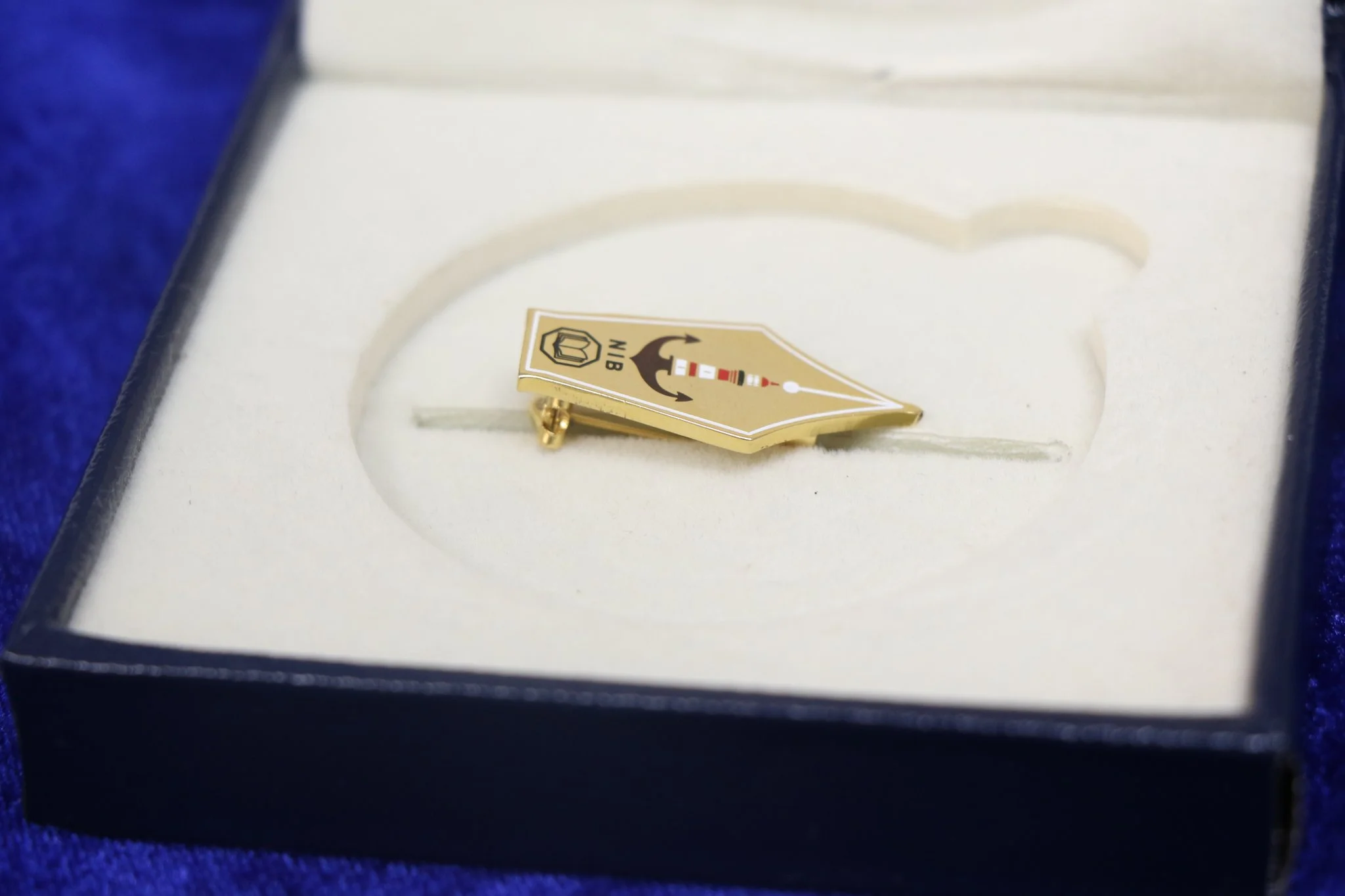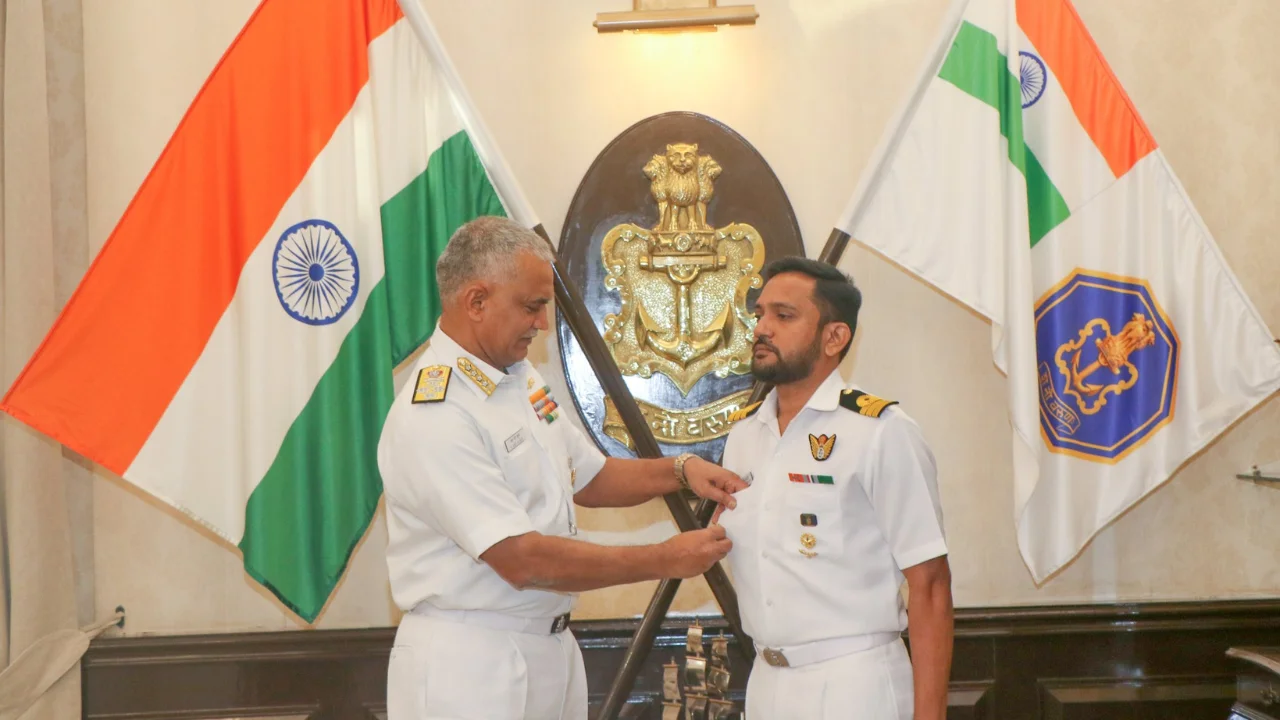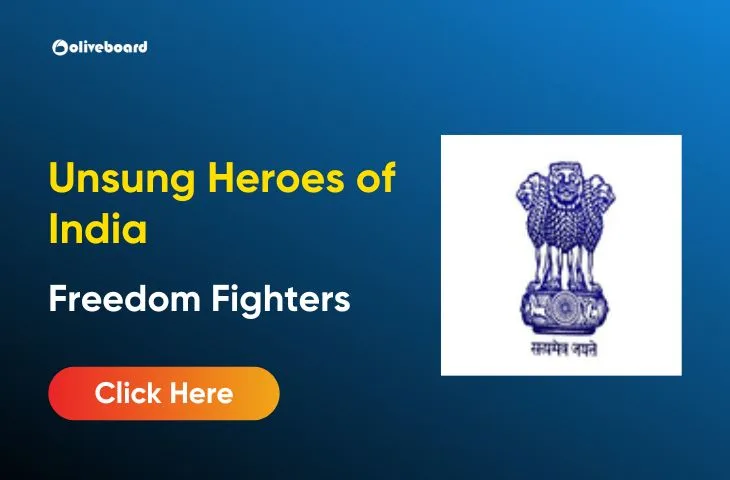Navy NIB Essay Competition
The Chief of the Naval Staff (CNS), Admiral R. Hari Kumar, presented the inaugural ‘Navy’s Intellectual Beacon’ (NIB) to Commander M. Arun Chakravarthy during a brief presentation ceremony held in his chamber. Vice Admiral K. Swaminathan, the Chief of Personnel, and Commodore G. Rambabu, the Commodore of Naval Education, were also in attendance at this event.
About the Sardar KM Panikkar ‘NIB’ Essay Competition
The Indian Navy has introduced the Sardar KM Panikkar ‘Navy Intellectual Beacon’ (NIB) essay competition with the goal of fostering reading, writing, critical thinking, and systematic analysis within its community.

Given the high level of professionalism that officers in the Indian armed forces must maintain, ongoing education and training are essential. Literary pursuits play a vital role in helping individuals form well-informed opinions on topics like national security, international relations, defense strategy, organizational behavior, and the management of combat forces.
In Honor of Sardar KM Panikkar
This award is established in honor of Sardar KM Panikkar, a maritime strategic thinker who advocated for maritime awareness in India, emphasized the importance of maritime power and naval policy in India’s growth and prosperity, and tirelessly promoted these ideas. The essay competition will become a significant part of the Navy’s annual calendar.
Who can participate?
All officers below the rank of Captain (equivalent to Colonel) are eligible to participate. The winner of the competition will receive a unique badge, which they can wear on their uniform for one year. This badge will be formally presented to the winner by the Chief of the Naval Staff.
Who was Sardar KM Panikkar?
Sardar Kavalam Madhava Panikkar (3 June 1895), popularly known as Sardar K. M. Panikkar, was an Indian statesman and diplomat. He was also a professor, newspaper editor, historian, and novelist. He was born in Travancore, a princely state in the British Indian Empire, and was educated in Madras and at the University of Oxford.
After a stint as a professor at Aligarh Muslim University and later at the University of Calcutta, he turned to journalism in 1925 as editor of the Hindustan Times. For the next 20 years, Madhava Panikkar served the Princely States, becoming secretary to the chancellor of the Chamber of Princes. He also served as the foreign minister of the state of Patiala and as the foreign minister of Bikaner and became the dewan of Bikaner in 1944.
Post-Independence
After India’s independence in 1947, Panikkar was appointed as India’s ambassador to China. He served in this position for four years, during which time he played a key role in negotiating the Panchsheel Agreement, a five-point treaty of friendship and cooperation between India and China.
Panikkar returned to India in 1951 and was appointed as India’s ambassador to France. He served in this position for three years and then retired from diplomatic service in 1954.
Books Written by him
Panikkar was a prolific writer and published over 50 books on a variety of subjects, including history, politics, international relations, and culture. Some of his most notable books include:
- India and the Indian Ocean (1945)
- Asia and Western Dominance (1953)
- The Principles of Hindu Polity (1955)
- The Foundations of New India (1961)
Honors
Panikkar was a highly respected figure in India and abroad. He was awarded the Padma Bhushan, the third-highest civilian award in India, in 1954. He was also a Fellow of the Royal Historical Society and a member of the American Academy of Arts and Sciences.
Panikkar died in New Delhi on 10 December 1963 at the age of 68. He is remembered as one of India’s most distinguished diplomats, historians, and scholars.
- Weekly Current Affairs 2025 PDF For Bank, SSC, UPSC Exams
- Unsung Heroes of India: 10 Unknown Freedom Fighters You Should Know
- 26 December Current Affairs 2023 in English
- Daily Current Affairs 2025, Check Today’s Current Affairs
- April Month Current Affairs 2024, Download PDF
- June Month Current Affairs 2024, Download PDF

Hello, I’m Aditi, the creative mind behind the words at Oliveboard. As a content writer specializing in state-level exams, my mission is to unravel the complexities of exam information, ensuring aspiring candidates find clarity and confidence. Having walked the path of an aspirant myself, I bring a unique perspective to my work, crafting accessible content on Exam Notifications, Admit Cards, and Results.
At Oliveboard, I play a crucial role in empowering candidates throughout their exam journey. My dedication lies in making the seemingly daunting process not only understandable but also rewarding. Join me as I break down barriers in exam preparation, providing timely insights and valuable resources. Let’s navigate the path to success together, one well-informed step at a time.






